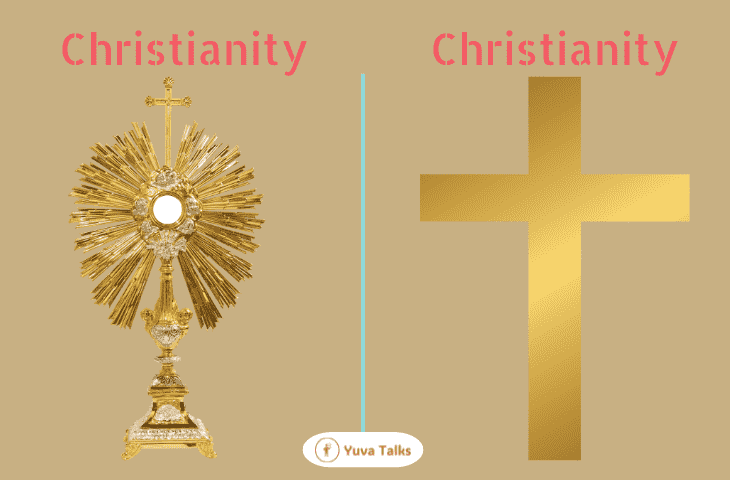Christianity, a major global religion, is characterized by its diverse beliefs and practices. Among its various branches, Catholicism is particularly significant. While Catholicism shares core principles with other Christian denominations, such as Protestantism, it is distinguished by its distinct customs, doctrines, and rituals.
To appreciate the rich diversity within the Christian faith, it is essential to examine the distinctions and similarities between Christianity and Catholicism. This article delves into their relationship, elucidating the fundamental differences and shared aspects of their religious practices, beliefs, and interpretations.
While Catholicism is a branch of Christianity, there are notable distinctions between the two. Below is a detailed exploration of their relationship and the primary differences.
Read More:- List of Top 10 Countries with the Highest Internet Speeds
Definition and Relationship
Christianity encompasses all followers of Jesus Christ, regardless of their specific denomination, such as Catholicism, Protestantism, or Orthodoxy. While not all Christians are Catholics, all Catholics are Christians.
Catholicism is a distinct subset of Christianity with specific traditions and beliefs that differentiate it from other Christian branches. Notably, Catholics recognize the Pope as the supreme spiritual authority.
Read More:- Top 10 Gold Exporting Countries
Key Differences
Catholic Perspective: In Catholicism, both the Bible and Church tradition—interpreted by the Magisterium—are regarded as having equal authority. The Church is seen as the custodian of truth and the interpreter of Scripture.
Christian Perspective: Many other Christians, particularly Protestants, uphold the Bible as the sole authority for faith and practice (sola scriptura). They stress personal interpretation of Scripture, independent of church tradition or hierarchy.
Catholic Understanding of Salvation: Catholics view salvation as a process that involves faith, good works, and participation in the sacraments. They believe that sacraments like baptism and communion are essential for receiving grace and achieving salvation.
Christian Understanding of Salvation: Many Christians view salvation as an immediate gift received through faith in Jesus Christ alone. They emphasize that salvation is granted by grace through faith, not by works.
Read More:- Top 10 Largest Container Ports in India
Role of Mary and Saints
Catholic Beliefs: Catholics venerate Mary and the saints, believing they can intercede on behalf of others. This includes practices like reciting the Rosary and praying to Mary and the saints.
Christian Beliefs: Most other Christians believe that Christ is the sole mediator between God and humanity and thus pray directly to God rather than seeking intercession from saints or Mary.
Sacraments
Catholic Sacraments: The Catholic Church recognizes seven sacraments as crucial to spiritual life and grace: the Eucharist, Confirmation, Reconciliation, Anointing of the Sick, Holy Orders, and Matrimony.
Protestant Sacraments: Many Protestant denominations acknowledge only two sacraments—Baptism and Communion—viewing them more as symbolic rather than as means of grace.
Read More:- Top 10 Largest National Parks in India
Worship and Practices
Catholic Worship: Catholic worship includes rituals such as the Eucharist, believed to be the true body and blood of Christ through transubstantiation, liturgical prayers, and the use of religious imagery, all integral to the Mass.
Protestant Worship: Protestant worship practices vary widely. Common elements include sermons, personal Bible study, and group prayer, often without a fixed liturgy.
While Catholicism represents a significant and unique branch of Christianity with its own rituals and doctrines, the broader Christian community includes a diverse array of interpretations and practices. Despite these differences, all Christians are united in their adherence to the teachings of Jesus Christ. Understanding these distinctions helps to appreciate the various paths within the Christian faith.


